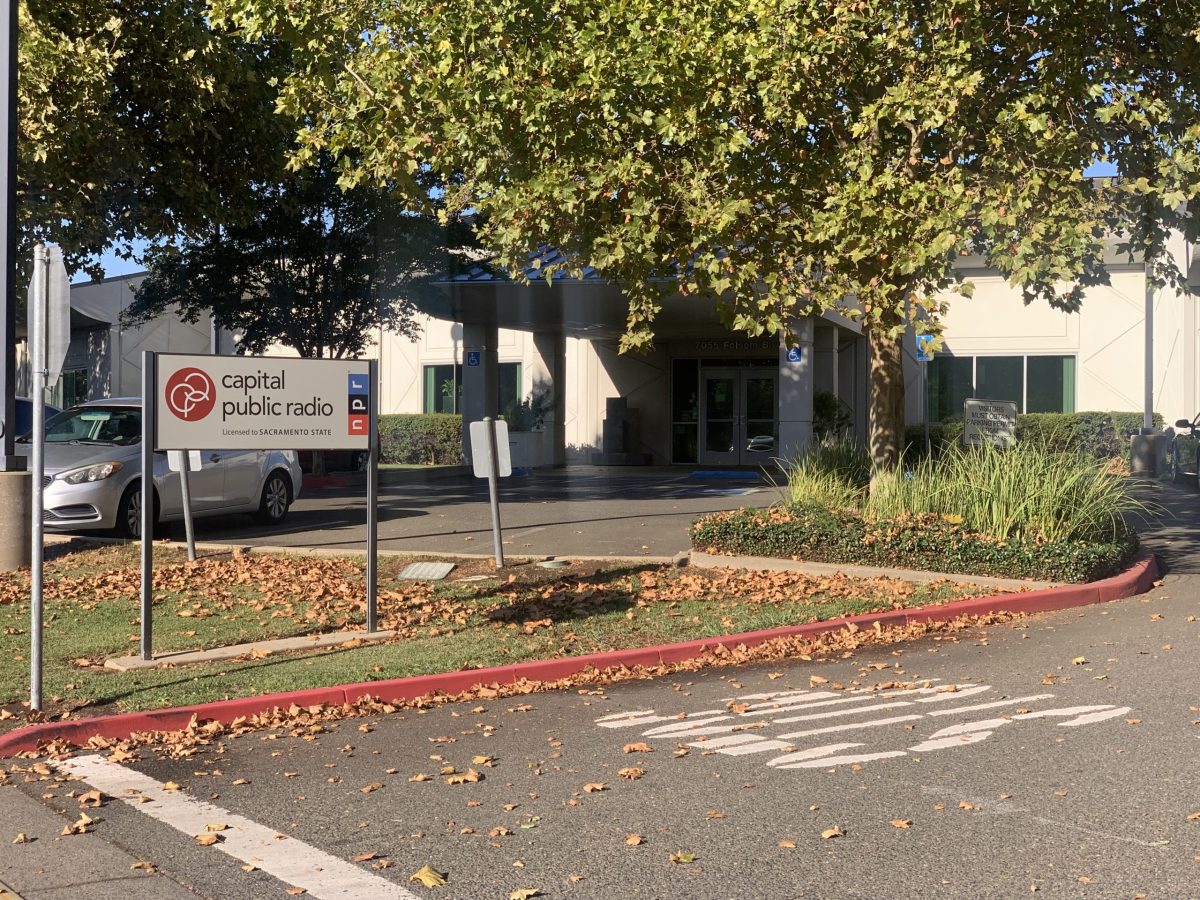The future of Sacramento’s local public radio station is uncertain as it faces gross financial mismanagement and recent resignations, according to local recent news reports.
Capital Public Radio is a non-profit that broadcasts on two radio stations out of its headquarters at Sacramento State University for news (90.9 KXJZ) and music (88.9 KXPR).
Cosumnes River College media professors expressed their feelings for what might lie ahead for CapRadio in interviews with Connection reporters.
“This is really kind of nuts,” said Radio, Television and Film Professor Lauren Wagner. “This is a really bananas situation.”
An audit released in late September exposed CapRadio’s liability and debts at nearly $30 million. Since laying off 12% of the staff in late August, seven of an initial 23 board members remain, according to the CapRadio board of directors website.
Journalism Professor Rubina Gulati, also The Connection’s faculty adviser, said she was sad about the news as both a journalism professor and Sacramento citizen.
“I am sad that this is probably impacting what some people in the audience think about CapRadio. I’m sad that they might lose listeners if they are able to survive,” Gulati said. “I am kind of sad for the audience. I feel like it’s a really valuable outlet, a valuable part of our local media.”
Gulati has been a CapRadio subscriber for over 10 years and said NPR offers coverage we don’t get in other places.
“I just feel like they’ve been more open in covering some of the social issues that impact the community,” Gulati said. “For example, with reporting being more aware of what’s impacted the LGBTQ+ community, I feel like I’ve been hearing that for 10 years on CapRadio.”
In a video posted to Vimeo on Sept. 29, Sac State President Luke Wood said that CapRadio will likely have “no remaining resources by January.” Because CapRadio is a non-profit, it cannot file for bankruptcy.
CapRadio is licensed by Sacramento State. That means Sac State is CapRadio’s money and property manager and is liable for its debts.
Wagner said she was kind of glad that CRC was not the host institution of CapRadio.
“For a couple of years I was like, ‘Oh we have radio labs, oh my god that would be so great if we could do some of their programming or we could do this or that,’” Wagner said. “But from what I understand, because they are kind of an arm of Sac State and Sac State has the licensing fees, Sac State is on the hook.”
Adjunct Radio, Television and Film Professor John R. Hull, who has worked in the radio industry for over thirty years, said both FM stations should go dark.
“Now, the FCC will only allow that for a short amount of time,” Hull said of the Federal Communications Commision, the federal government body that regulates the broadcast airwaves on cable, radio, television and satellite. “I think you are given 30 days to basically tell the Federal Communications Commission ‘We’re going dark for this period of time but our intentions are to sell the property or to come back on the air.’”
Radio, Television and Film Production Department Chair Mun Kang said that the situation could have been avoided.
“If the hiring process hired a diverse integral board, management and staff with the utmost integrity and honor, all of this could have been prevented. It comes down to being open, real and honest regarding the financial situation and handling the right way,” Kang said. “There are many corrupt people with selfish motives who don’t realize the consequences of their actions.”
Gulati said this wouldn’t influence how she teaches journalism and that it wasn’t the news director or staff of the newsroom that impacted the mismanagement.
“It shows that CapRadio needed some oversight. They needed to be managed better. I don’t know that I would doubt the ethics of the journalists that I listen to,” Gulati said. “I would hate for this to be a reason that somebody doesn’t go into public radio.”
Wagner said that she still listens to CapRadio everyday when she drives to work.
“I still think that the content they provide is really good,” Wagner said.
Hull was blunt when speaking about CapRadio’s future.
“I don’t know what the end of this is, unless Sac State hires somebody who really is a broadcaster, has had experience elsewhere with a public radio station operation, brings them in and they clear house,” Hull said. “Everybody’s gone, you start all over.”


M Jung • Nov 1, 2023 at 10:12 am
Hope the station will be able to stabilize finances to exist with enough autonomy it desires…